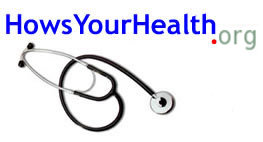
© 1997-2023 FNX Corporation and Trustees of Dartmouth College. All Rights Reserved.
Risks: What Are My Chances?
Contents
Before you begin to improve your health you need to understand what might damage your health in the first place. Misunderstanding risk undermines good health habits and effective self-care. Misunderstanding risk can also be bad for survival.
Fear is one of the most important reasons why we have difficulty getting risk right. Most of us have such an instinctive fear of sharks we do not realize that we are many more times more likely to be killed driving to the beach by our car than being attacked by a shark.
Depending on our mind-set on a particular day, we may be incorrectly care- free or wrongly scared. Advertisers and designers understand how our estimates of risks and benefits can be twisted.
Have Your Ever Burped or Felt Bloated? If you have, you may suffer from the gastrointestinal affective syndrome (GAS). People who have GAS have fewer friends. You want to have friends, don’t you?
Talk to your doctor about GAS or call 1800 IGOTGAS to receive our free promotional educational booklet.
We have made up this silly “advertisement” to illustrate what we see and hear every day. Because all of us face some risks and all of us have some health concerns, health product advertisers have a huge market. They also have an economic incentive to make health threats seem large and the benefits of their treatment seem even larger. Despite the pressure we should try to get risk right.
Risk and Health Decisions
Special tables in the Chapter of the HowsYourHealth Book that is available for you for free at HowsYourHealth website provide much more detail about common risks. As an example, in those tables you will see that quitting smoking can prevent about 70 deaths for every 1000 middle-aged women smokers.; having a mammogram will prevent about 2 deaths in 1000 middle-aged women over the next ten years.
You will see the percent of all deaths that might be prevented:
| Percent of All Death That Can Be Prevented | Actions You Need to Take to Avoid This Risk |
|---|---|
| Smoking (18%) | Don't Smoke |
| Bad Diet/Poor Exercise (17%) | Life Style Choices |
| Infections and Sexual Risks (4%) | Immunizations and Condoms |
| Pollution and Toxins (3%) | Politics and Baby-safe Home |
| Motor Vehicles (2%) | Seatbelts and Less Speed |
| Firearms (1%) | Avoid and Lock |
For persons aged 65 years of age or older, HowsYourHealth also provides a tool for making decisions and getting you the information you need about your risks and decisions.
Risk from Modern Tests that Look for Early Disease
We all know that some treatments can cause harms. For example, taking small amounts of aspirin can cause serious bleeding in a few people. But it is harder for most of us to understand how some tests that are supposed to find early disease can cause harms. Tests to find early diseases can have THREE unwanted consequences.
1. The test can actually hurt you. For example, a total body scan to look for diseases often give you a lot of radiation. The test also leads to other tests that can hurt you. A total body scan will find at least one thing wrong in about 8 of 10 people. Additional tests – often more dangerous- will be recommended to find out if these things that are wrong are really dangerous.
2. The cost of the test and the higher cost of getting insurance if the test finds a disease (even when that disease is very unlikely to ever hurt you). Here are examples of common diseases found on total body scan and the estimated chance that it is actually finding a cancer that could kill you.
- Lung scan to look for cancer in smoker. About half of the scans will show something abnormal and less than 5 in 100 will be a fatal cancer.
- Lung scan in non-smoker. About one of six of the scans will show something abnormal and less than 1 in 100 will be a fatal cancer.
- Thyroid scan. Up to 2 of 3 will be abnormal and almost none will have a fatal cancer.
- Abdomen scan. About 1 of 4 will show something abnormal in the liver or kidneys and less than 1 of 100 will be a fatal cancer.
3. The treatment can harm you. For example, pills to treat an increase in fat in the blood can cause deaths.
THE BOTTOM LINE
Be smart about your risks. Get the information you need so that you can answer: what are my real chances?